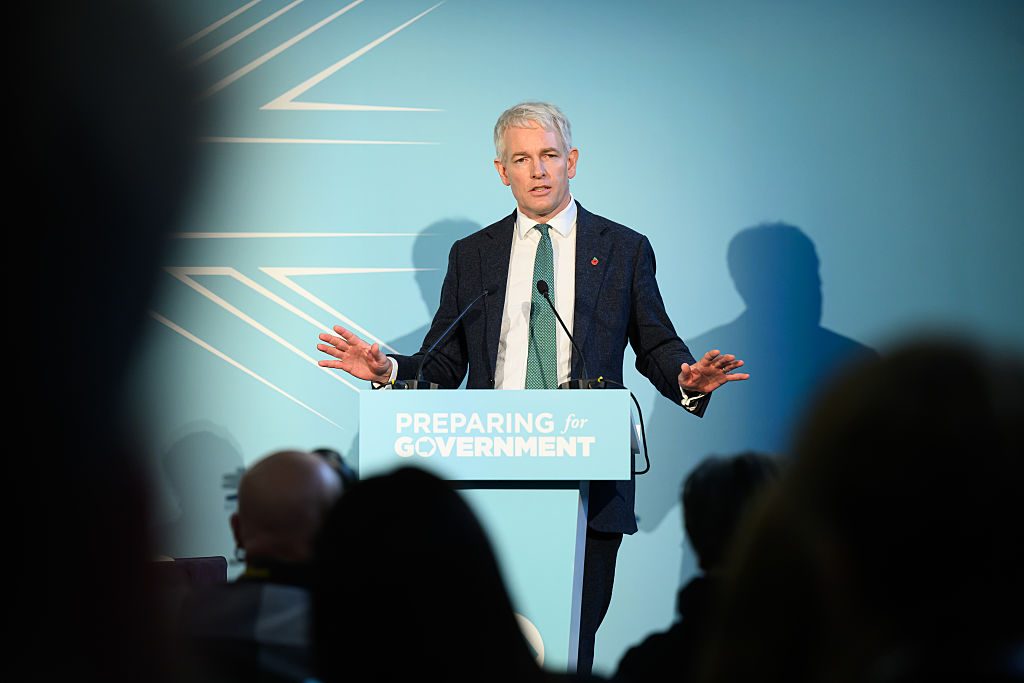At a press conference yesterday, Reform UK announced that, should it win the next election, it will dramatically reduce the size of the British Civil Service. Danny Kruger, the first incumbent Tory MP to defect to Nigel Farage’s party, has promised that by reducing staff numbers and closing buildings, the Government could make huge savings. The party also proposed a minor tweak to the Civil Service Code, making it clear that officials are directly responsible to ministers, not permanent secretaries. Reform thinks this will restore parliamentary control over the blob and make Government work better.
It is true that the Civil Service has grown significantly in the years since the pandemic. But in reality much of this was simply recovery after the severe cuts that took place during the David Cameron/George Osborne era. When Labour left office in 2010, the Civil Service had around 480,000 personnel. By 2016, the Conservatives and Liberal Democrats had reduced its numbers to about 380,000. Today, there are around 550,000 civil servants.
This may seem like a large increase, but it isn’t if we look historically. In 2005, the British Civil Service employed about 520,000 people — basically the same number of people as it employed in 1995. Under Margaret Thatcher, it was even larger: during her first four years in office, the then PM reduced the number of civil servants from 732,000 to 630,000. So, the Civil Service of which Reform complains today is very much in line with the size of the Civil Service as it was under Thatcher, John Major, and Tony Blair. Cutting numbers, then, does not seem destined to fundamentally improve British statecraft.
The problem with the Civil Service is not necessarily size but attitude. Detailed process, consultation, reviews, and reflection can distract from delivery. Part of this is cultural. Risk aversion has become a kind of survival technique. But part of it is legal. Our MPs have written laws that force civil servants to approach policy delivery in this way. Otherwise, the threat of judicial review looms. If the correct procedures are not followed, then Government projects might be stopped in their tracks by judges.
For MPs who see their job as actually doing something rather than simply being something, the frustration is palpable. In August this year, one of Liverpool’s Labour MPs Ian Byrne, a critic of Keir Starmer, bemoaned the sluggish state apparatus. “The thing is: we’ve got the levers of power,” he said. “You’ve got to be able to knock on that doorstep and people open the door and go: ‘you’ve done this for me, you’ve built council houses, you’ve lifted people up out of poverty, my city, my community looks far better’.”
On the eve of the Second World War, the economist and Labour Party chairman Harold Laski wrote that democracy needs “the drama of positive achievement to retain its faith”. He was right: delivery ensures voters feel like Government is working. A risk-averse Civil Service mindset snuffs out that confidence, and people turn to more extreme alternatives.
For years, it has been long understood that the ethos of the Civil Service has been characterized by careful process rather than driving passion for change. “If you try to make political choices then the Civil Service comes out of its corner,” Tony Benn wrote in 1976. “It recognizes a new power center and prepares itself to win the battle.”
If Reform is serious about making the British state work better, sacking 100,000 civil servants and closing a few buildings is hardly the way to go about it. A Reform government will require ministers who understand what they want to do and have the intellectual confidence to stand up for the policies of their government.
The late Joe Ashton, long-time Labour MP for Bassetlaw from 1968 to 2001, once said “There are only two sorts of people who can defeat the Civil Service: the public school boys and the Arthur Scargills”. Danny Kruger is no Arthur Scargill, but he did go to Eton.











Join the discussion
Join like minded readers that support our journalism by becoming a paid subscriber
To join the discussion in the comments, become a paid subscriber.
Join like minded readers that support our journalism, read unlimited articles and enjoy other subscriber-only benefits.
Subscribe